The UK Research and Innovation Strength in Places Fund

What is The Strength in Places Fund (SIPF)?
SIPF is a UK Research and Innovation (UKRI) programme that helps areas of the UK to build on existing strengths in research and innovation to deliver benefits for their local economy. It aims to:
– support innovation-led regional growth
– enhance local collaborations involving research and innovation.
SIPF is investing £314 million in 12 projects to boost economic growth in central and south Scotland, Northern Ireland, south Wales and across England.
On-screen captions and autogenerated transcripts for all videos are available on YouTube.
Projects focus on a self-defined area anywhere in the UK, not limited by nations or regions.
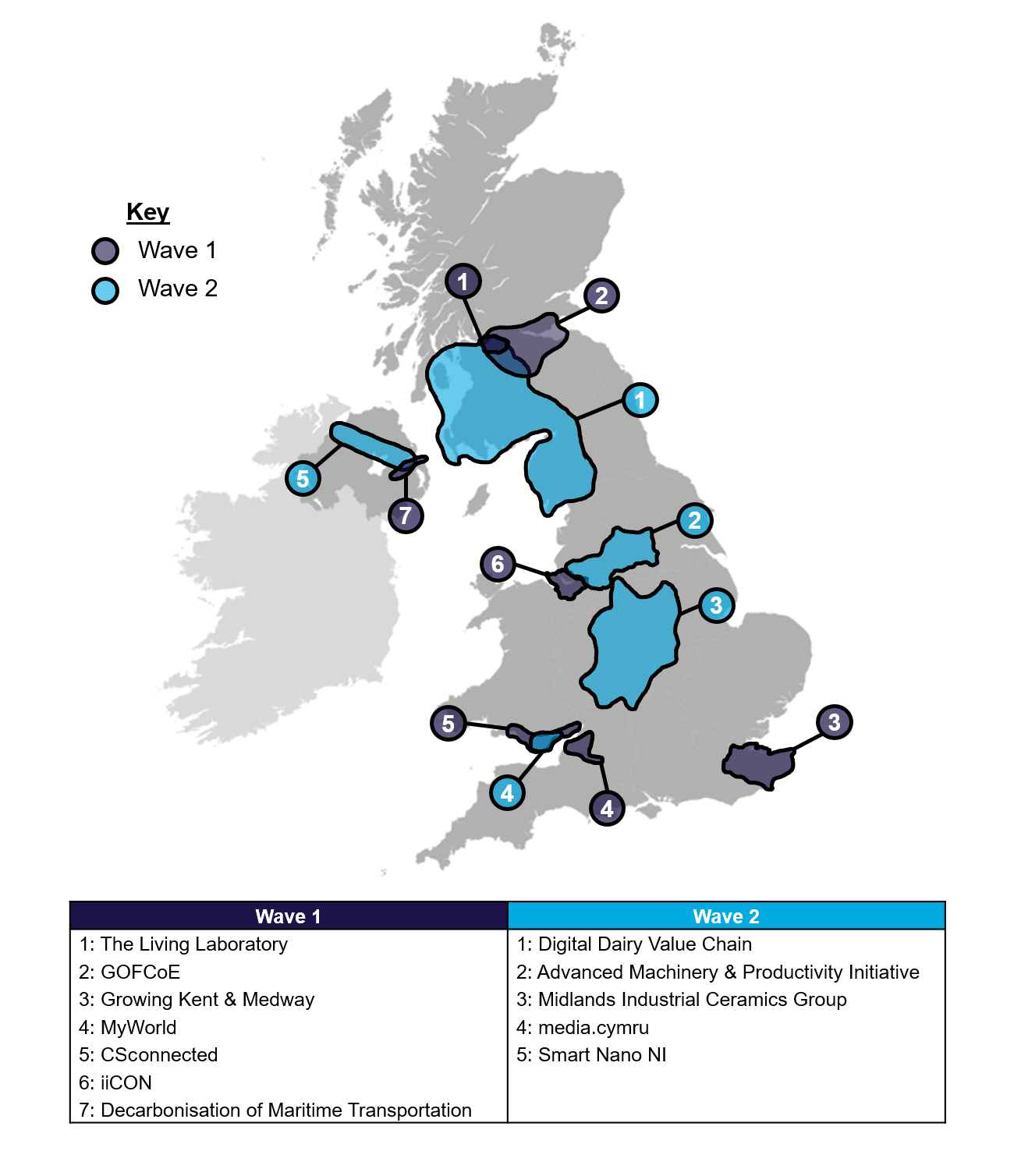
All projects are collaborative and are led by consortiums that include both research organisations and businesses. Consortiums also need strong engagement from local leadership partners.
SIPF is funded from the National Productivity Investment Fund.
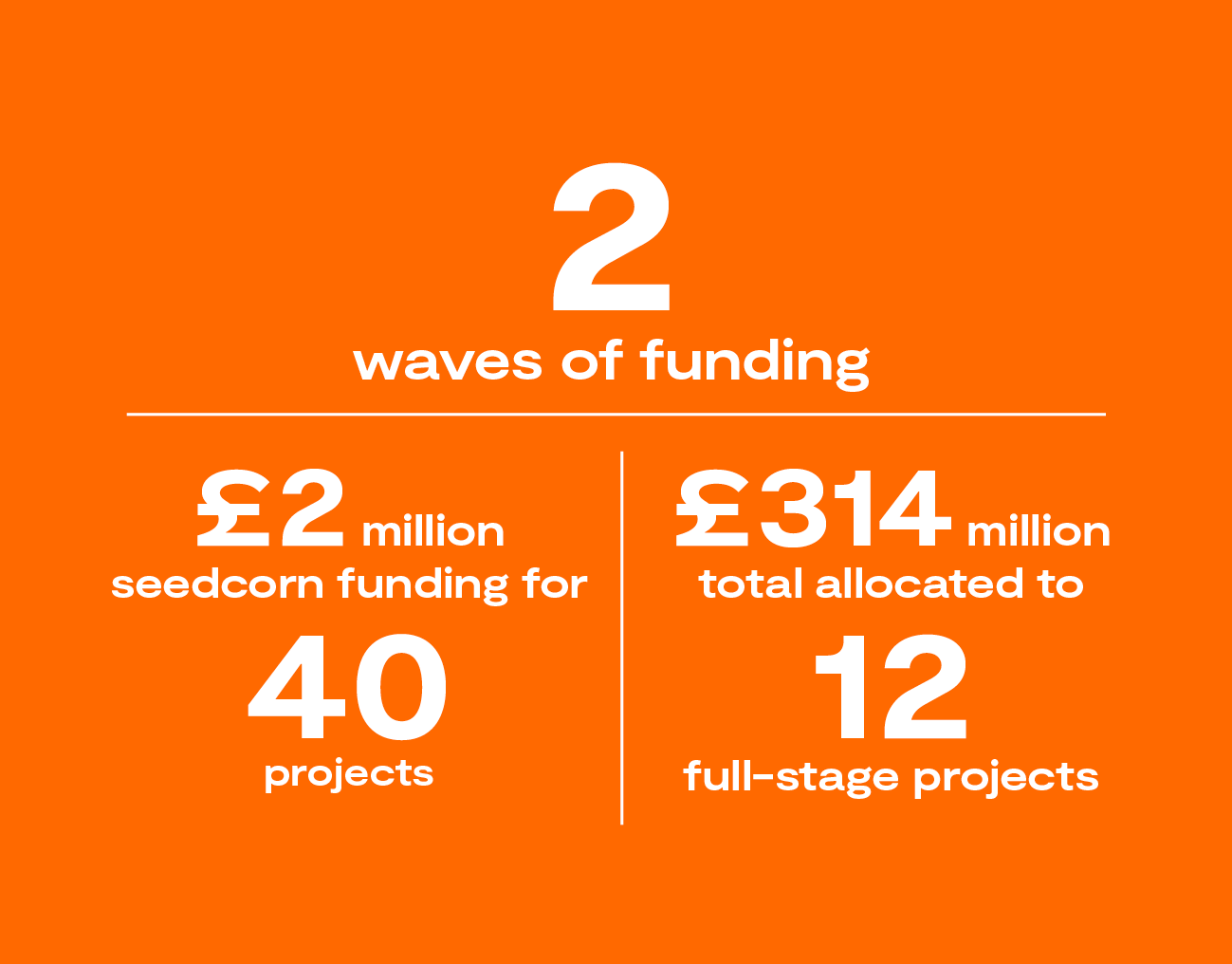
How does SIPF drive economic growth?
It does this by funding consortia of research organisations, businesses and local leadership, to do research and innovation that will have a impact on local economic growth.
Projects funded by
SIPF

Yorkshire and Manchester
Advanced machinery and productivity initiative (AMPI)
SIPF investment: £23 million
Based across west Yorkshire and Greater Manchester, this partnership is between industry, local government, higher education institutions and the UK's National Physical Laboratory (NPL). It will provide businesses with access to cutting-edge research and development (R&D), expertise and facilities that help solve innovation challenges.
It will enable industry to deliver:
- invention
- innovation
- increased adoption of progressive and exploitable technologies.
It will stimulate and support rapid growth in the UK's machinery manufacturing sector as it transitions to highly integrated digital solutions with sophisticated automated and autonomous robotic systems. These are needed for the UK to realise its ambitions for economic growth, a resilient supply chain and technologies needed to deliver targets such as net zero carbon emissions and increased export.
Gareth Edwards, AMPI Programme Director (NPL) said:
"AMPI is a vision for collaboration, innovation and economic growth, developed by the UK’s machinery sector. We are delighted to be working within the SIPF programme to deliver impact at a time when UK manufacturing supply chains critically need it. Through AMPI we will be helping industry to design, develop and manufacture the next generation of advanced machinery."

Video introducing AMPI, the project that will stimulate the machinery manufacturing sector in north England and across the UK. Video credit: UKRI. On-screen captions and an auto generated transcript is available on YouTube.
Through the five-year SIPF programme, AMPI will:
- stimulate an extra 560 local jobs, including 120 new apprenticeships
- increase exports by over £130 million
- deliver an enduring programme for onward growth.
Wales
CSconnected
SIPF investment: £25 million
This project is building on south Wales’ strengths in advanced semiconductor materials and manufacturing. It will also give the UK a global advantage in technology for sectors such as 5G communications and autonomous vehicles.
Project lead: Cardiff University
Partners:
- Swansea University
- Compound Semiconductor Centre
- IQE
- Nexperia
- SPTS Technologies
- Microchip Technology Caldicot
- Compound Semiconductor Applications Catapult
- Microlink Devices UK
- Rockley Photonics
- Cardiff Capital Region
- Welsh government.
Professor Max Munday, Cardiff Business School said:
"Connecting expertise, capacities and capability within both the private sector, public sector and academia has already led to the establishment of a critical mass of activity, which is undoubtedly now the largest concentration of compound semiconductor activity in the UK."
The impact of CSconnected: this project is bringing a new sense of pride to south Wales as well as providing tangible job and skills opportunities. Video credit: UKRI On-screen captions and an auto generated transcript is available on YouTube.
It will help south Wales’ compound semiconductor industry to:
- create 3,000 jobs by 2025
- increase its direct contribution to the local economy to £265 million per year
- improve skills among local people.
UKRI also supports compound semiconductor activities in south Wales through other funding streams. This includes:
- Engineering and Physical Sciences Research Council
- Innovate UK’s Compound Semiconductor Applications Catapult
- Research England’s UK Research Partnership Investment Fund.
Read about CSconnected.
Media Cymru
SIPF investment: £22 million
Media Cymru is a collaboration to accelerate growth in the Cardiff Capital Region's media sector, bringing together 24 media production, broadcast, technology, university and local leadership partners to supercharge media innovation.
The programme’s activities are designed to respond to emerging technologies, increase small businesses' capacity for innovation and address skills needs for the future. Media Cymru will develop:
- solutions to challenges and opportunities for the Welsh media sector in areas including sustainability, bilingual production, diversity and inclusion, tourism and technology
- new infrastructure including a world-class virtual studio
- an innovation and R&D pipeline that enables the best ideas to become new products, services and experiences ready for market.
The £50 million programme will make the Cardiff Capital Region a global hub for media innovation and production.
Project lead: Cardiff University
Professor Justin Lewis, Media Cymru Director said:
"The Media Cymru programme focuses on making the Cardiff Capital Region a global hub for media innovation. It will give the SMEs and start-ups that make up the Welsh media sector opportunities to collaborate and innovate which will result in economic uplift. Media that is made in Wales to inspire the world."
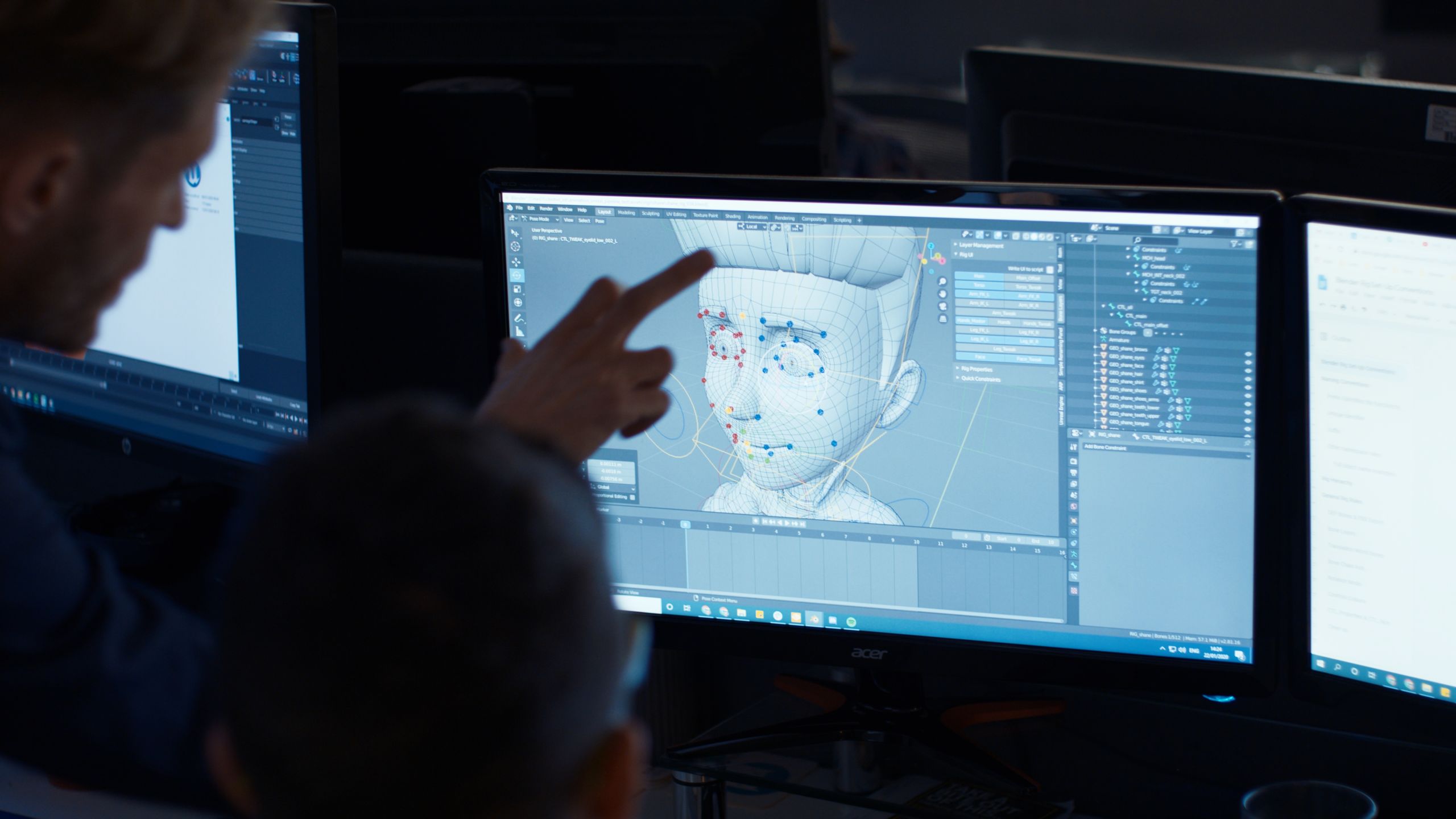
Introducing Media Cymru, the project that brings together 24 partners in the Cardiff region to supercharge media innovation. Video credit: UKRI. On-screen captions and an auto generated transcript is available on YouTube.
Project partners:
- Alacrity Foundation
- BBC
- Boom Cymru
- Cardiff Capital Region
- Cardiff Council
- Cardiff Metropolitan University
- Cardiff Productions
- Channel 4
- Dragon DI
- Ffilm Cymru Wales
- Gorilla TV
- Great Point Media
- Nimble Dragon
- Object Matrix
- Rescape Innovation
- Rondo Media
- S4C
- Shwsh
- TownSq
- University of South Wales
- Unquiet Media
- Wales Interactive
- Welsh government.
Media Cymru will drive an additional £236 million in gross value added (GVA) by 2026 and aims to create hundreds of jobs and more innovative firms in the region.
Read more about Media Cymru
South-west Scotland and Cumbria
Digital Dairy Value-chain for south-west Scotland and Cumbria
SIPF investment: £21 million
The Digital Dairy Value-chain project will be a considerable boost to Cumbria and south-west Scotland.
It will renew and decarbonise the area’s dairy industry, which every year produces 1.9 billion litres of milk. It will provide world-class opportunities for research and business innovation in advanced, sustainable, high-value dairy processing.
It will work with the dairy industry to develop and introduce technologies for sensing and data handling, as well as infrastructure to support innovation and growth for local businesses.
Project lead: Scotland’s Rural College (SRUC)
Professor Wayne Powell, Principal and Chief Executive of SRUC said:
"This funding is wonderful news for the dairy industry in Cumbria and south-west Scotland, as well as for the renewal and decarbonisation of the industry as a whole. It will provide a world-class platform for business innovation in advanced, sustainable, high-value dairy processing.
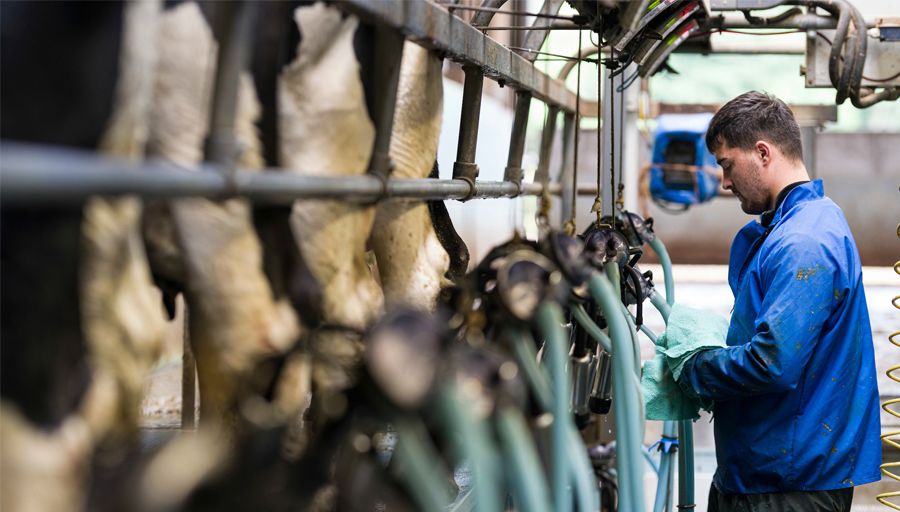
Introducing the Digital Dairy Value-chain: how it will support innovation in the dairy sector and boost the economy of Cumbria and south-west Scotland. Video credit: UKRI. On-screen captions and an auto generated transcript is available on YouTube.
It will deliver advanced manufacturing processes to create a fully integrated and traceable supply chain as well as help businesses to develop new products and explore new markets.
Aiming to create more than 600 new jobs and add £60 million to the annual output of the local economy.
Partners:
- University of Strathclyde
- University of the West of Scotland
- CENSIS
- First Milk Ltd
- Lactalis McLelland Ltd
- Kendal Nutricare Ltd
- Cows and Co Group Ltd
- National Milk Records Plc
- SmartSTEMs.
South-east England
Growing Kent and Medway
SIPF investment: £18 million
This project is developing Kent and Medway as the UK’s leading region for climate-smart food production and processing. It is supporting local horticultural and food businesses and investing in technologies such as:
- artificial intelligence
- automation
- smart packaging.
Project lead: NIAB EMR at East Malling
Partners:
- Berry Gardens Growers
- Kent and Medway Economic Partnership
- Chapel Down Group
- Gusbourne Estate
- Locate in Kent
- APS Produce
- Thanet Earth
- University of Kent
- Worldwide Fruit
- Natural Resources Institute
- University of Greenwich
- Geku UK
- Smurfit Kappa UK
- Richard Hochfeld.
By 2030, it will create 1,700 jobs and add £39 million annually to the local economy.
It is investing in state-of-the-art infrastructure and research facilities, scientific expertise and enterprise growth. It will make this region one of the most dynamic, competitive and successful horticultural and agri-tech locations in the world.
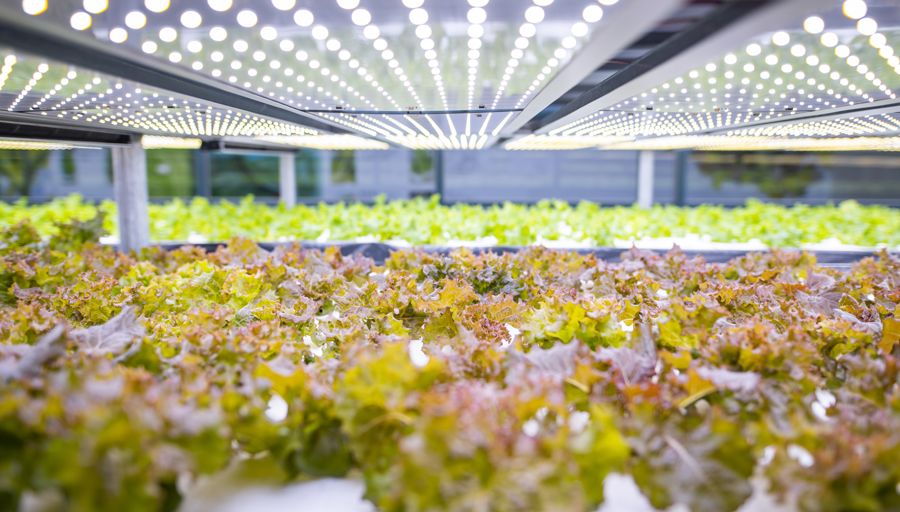
The impact of Growing Kent and Medway: how this project is supporting the local area with new technology, investment and jobs. Video credit: UKRI. On-screen captions and an auto generated transcript is available on YouTube.
Read about Growing Kent and Medway.
North-west England
Infection Innovation Consortium (iiCON)
SIPF investment: £19 million
IiCON is a leading global centre of infectious disease R&D excellence that is building on the world-leading expertise in north-west England.
It aims to save millions of lives and reduce the global burden of disease by making it possible to bring new diagnostics, vaccines, and therapeutics to patients more quickly, safely, and affordably. Ten specialist commercially sustainable research platforms in the area have been co-developed and operated by industry, academia, and the NHS. These platforms drive and enable co-innovation, and can rapidly pivot to handle any infectious disease, meaning that iiCON’s model inherently supports pandemic resilience.
IiCON will generate hundreds of high-value jobs, engage and enrich local communities, and establish the North-west as the leading global destination for infectious disease R&D, anticipating £1 billion more investment per year in the area over the next decade.
Project lead: Liverpool School of Tropical Medicine
Dr. Helen Jamet Deputy Director, Vector Control, Malaria Global Health Division, Bill and Melinda Gates Foundation said:
We are excited by this new initiative, it gives us an innovative, high profile programme to interface with on shared common goals across a broad range of programs. This mix of skill sets is not replicated elsewhere globally. The relatively modest investment requested of UKRI to co-develop this Consortium will leverage investment of industry and other major funders including the Gates Foundation in a mutually beneficial format."
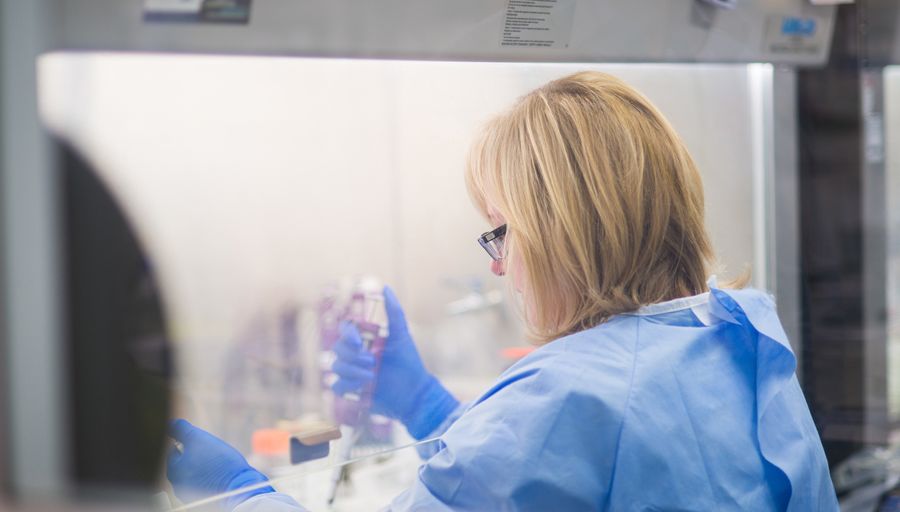
The impact of the Infection Innovation Consortium: how this project is building on existing strengths in Liverpool and Cheshire to drive forward medical science that will benefit the world. Video credit: UKRI. On-screen captions and an auto generated transcript is available on YouTube.
Partners:
- Liverpool University Hospitals NHS Foundation Trust
- Infex Therapeutics
- Evotec (UK)
- Unilever
- University of Liverpool.
Read about Infection Innovation consortium.
Scotland
The Living Laboratory
SIPF investment: £38 million
The Living Laboratory is building on Glasgow city region’s world-leading research and innovation expertise to harness the potential of precision medicine. The programme brings together a consortium of partners from across the University of Glasgow, NHS Greater Glasgow and Clyde, and industry, to deliver a series of exciting projects that actively accelerate the adoption of science and healthcare innovation into routine clinical practice for the benefit of patients.
The programme aims to improve health outcomes, drive economic development in Glasgow, support the growth of a precision medicine industry cluster and deliver savings for the NHS.
Project lead: The University of Glasgow
Partners:
- NHS Greater Glasgow and Clyde Health Board
- BioClavis
- Canon Medical Research Europe
- Kadans Science Partner UK
- MR CoilTech
- Glasgow Science Centre
- Precision Medicine Scotland
- iCAIRD
- Glasgow City Council
- Glasgow City Region
- Scottish Enterprise
- Siemens Healthcare
- Skills Development Scotland.
Linda Hanna, Managing Director Scottish Economic Development at Scottish Enterprise said:
"The Living Laboratory is conducting cutting edge work in precision medicine which will benefit patients and the NHS, as well as creating high value jobs and opportunities to help tackle inequality. The SIPF funding will support the next steps to develop a cluster of life science businesses near Govan and help put Scotland at the heart of leading the fight against a range of illnesses and conditions."
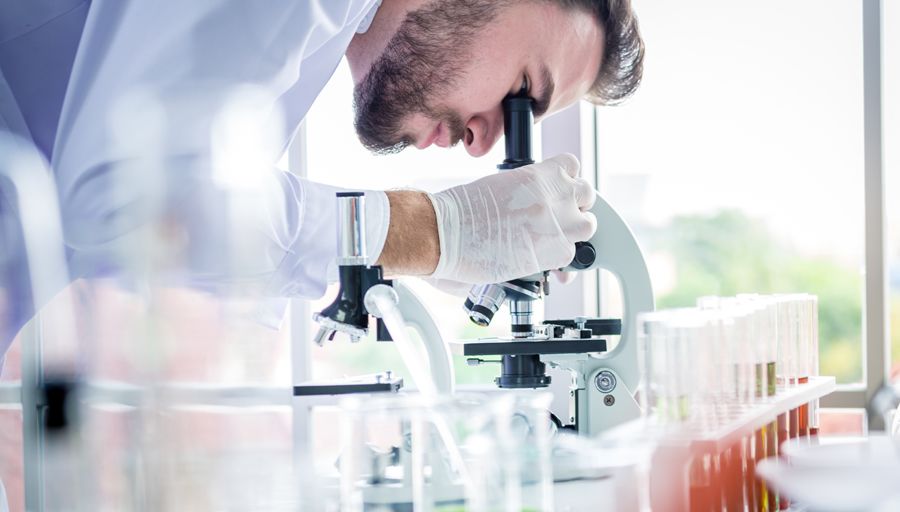
Introducing the Living Lab, which is building on world-class research in Glasgow to help patients across the UK, save money for the NHS and improve the local economy. Video credit: UKRI. On-screen captions and an auto generated transcript is available on YouTube.
The Living Lab aims to create 446 high-value jobs and £136 million GVA over an eight-year period.
Read about The Living Laboratory.
Global Open Finance Centre of Excellence (GOFCoE)
SIPF investment: £23 million
This project will build a data innovation organisation, serving the public, private and third sector.
Its mission is to improve people’s lives by safely unlocking the potential of financial data to enable research, innovation and skills development in financial services and fintechs.
These objectives will be achieved by driving new data driven research through the development of a Global Economic Observatory. It will:
- enable faster, richer and collaborative innovation through a data-driven innovation environment
- create global technical standards in application programming interface security, digital identity and other technical infrastructure through creating a Global Technical Standards Working Group.
GOFCoE will also champion consumer protection through research into economic crime and customer data protection, while building talent programmes to re-skill and up-skill the business teams of tomorrow’s financial services marketplace.
Professor Jonathan Seckl, University of Edinburgh’s Senior Vice-Principal said:
"The award from the Strength in Places Fund will allow us to make a unique contribution to the economic recovery from Covid-19. The Centre will be a world-first, providing leadership, coordination, research and capability to develop the benefits of Open Finance and to safely unlock the potential of customer data as a force to improve lives."

The impact of GOFCoE: how this project is harnessing the power of data to tackle social issues and benefit people in Scotland and across the UK. Video credit: UKRI. On-screen captions and an auto generated transcript is available on YouTube.
Project lead: University of Edinburgh
Partners:
- Financial Data and Technology Association (FDATA)
- FinTech Scotland.
Over 15 years, GOFCoE is expected to generate uplifts of £223 million to £304 million GVA net present value and create 2, 800 to 3, 400 jobs in central Scotland.
Read about GOFCoE.
The Midlands
Midlands advanced ceramics for industry 4.0
SIPF investment: £18 million
The Midlands Industrial Ceramics Group (MICG) is a consortium of researchers, manufacturers and end-users. Together, the group will develop streamlined processes for proving and bringing new advanced ceramics technologies to market faster, with less energy usage and lower carbon emissions. This will enable effective problem-solving and faster commercialisation of new products, unlocking improved performance for next generation products including:
- fuel cells and batteries
- 5G communications
- ceramic-matrix composites for aero engines
- medical devices.
It will also boost the competitiveness of manufacturers in the region by developing a robust advanced ceramics supply chain, able to export into one of the fastest growing international industry sub-sectors. Advanced ceramics are vital ‘enablers’ for many manufacturing sectors including:
- energy
- health
- aerospace
- automotive
- defence.
However, developing new technologies is currently based on a variety of experimental approaches with much reworking and high rejection rates, resulting in expensive, time-consuming work.
Project lead: Lucideon
Ian Edmonds, of Rolls-Royce, Chair of MICG said:
"This is great news for the Midlands. Advanced ceramics are often unseen but vital components of jet engines, electronics, medical devices, car batteries, other energy technologies and many more manufactured products. They allow products to operate at higher temperatures, in more challenging environments and can last longer than plastic or metal equivalents. Globally, the advanced ceramics sector is projected to be worth £143 billion by 2023, and the outcome of this funding means the Midlands is well-placed to be part of it."
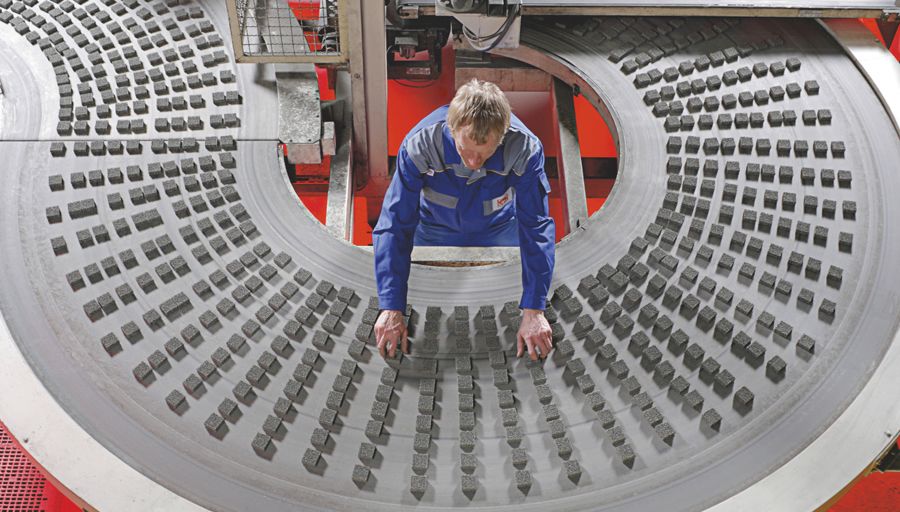
Introducing Midlands Advanced Ceramics for Industry 4.0, the project that will help the Midlands’ ceramics industry to innovate more efficiently. Video credit: UKRI. On-screen captions and an auto generated transcript is available on YouTube.
Partners:
- Rolls-Royce
- Morgan Advanced Materials
- Vesuvius (Foseco)
- Trelleborg Retford
- McGeoch Technology Ltd (Precision Ceramics)
- CDS
- PCL Ceramics
- AEON Engineering
- Mantec Technical Ceramics
- Prince Minerals
- JCB
- WCM
- University of Birmingham
- University of Leicester
- Loughborough University.
The programme will drive significant expansion in advanced ceramics in the Midlands, leading to jobs growth of 4,200 in the next decade.
Read about the MICG
South-west England
MyWorld
SIPF investment: £30 million
This creative hub is building on regional strengths in creative media production, technology and research. It will create new experiences in fiction, documentary, games and live performance by:
- providing 1, 000 square metres of new collaborative R&D facilities
- funding innovative research and development
- improving skills
- exploiting digital formats.
It will enable the region’s creative sector and technology organisations to collaborate and connect regionally, nationally and globally.
This creative hub will generate £223 million additional GVA and over 700 new jobs in the West of England.
Project lead: University of Bristol
Professor Hugh Brady, Vice-Chancellor and President of the University of Bristol said:
"This funding award is tremendous news for the university, the city of Bristol, and the entire south-west region, particularly at a time of economic uncertainty that has hit the creative sector hard."

Introducing MyWorld, which is building on the creativity in south-west England to drive progress and create jobs in the screen-based media industry. Video credit: UKRI. On-screen captions and an auto generated transcript is available on YouTube.
Partners:
- Aardman Animations
- Bath Spa University
- BBC
- Bristol Old Vic
- British Telecom
- Burrell Durrant Hifle (BDH)
- Digital Catapult
- Esprit Film and Television
- Opposable Games
- University of the West of England
- University of Bath
- Watershed Arts Trust
Read about MyWorld.
Northern Ireland
Smart Nano NI
SIPF investment: £42 million
Smart Nano NI Consortium brings together organisations from across Northern Ireland to form a unique cluster of expertise in smart and nano-manufacturing.
In the next five years, the consortium will:
- create and test over 100 prototypes, leading to novel products for companies in Northern Ireland
- explore commercial opportunities with over 70 local small and medium sized firms
- aim for a productivity growth of 30% with industry partners.
Companies in Northern Ireland will get access to new photonics and innovation capabilities, addressing market opportunities in the healthcare, internet communications and cloud data storage sectors. In this globally expanding field, the consortium will boost the economy and increase skill levels in local communities.
Project lead: Seagate Technology Ireland
Mark Gubbins, Spokesperson for Smart Nano NI consortium said:
"This investment will deliver significant benefits for the economic growth of the region and the ‘corridor’ of businesses from Belfast to Londonderry, ensuring a levelling up of shared opportunities."

Introducing Smart Nano NI: how it’s going to take Northern Ireland’s smart and nano-manufacturing industry to new heights. Video credit: UKRI. On-screen captions and an auto generated transcript is available on YouTube.
Partners:
- Analytics Engines
- Causeway Sensors
- Cirdan Imaging
- Digital Catapult NI
- North West Regional College
- Queen’s University Belfast
- Seagate Technology
- Ulster University
- Yelo.
Read about Smart Nano NI
Decarbonisation of maritime transportation: a return to commercial sailing
SIPF investment: £33 million
This project is building on Belfast’s maritime heritage and world-leading expertise in advanced manufacturing and renewable energy to develop zero emissions hydrofoil ferries and a maritime transport system of the future. It is helping to make Belfast Harbour one of the world’s most environmentally friendly regional ports.
Project lead: Artemis Technologies
The project is expected to create more than 1,000 new jobs in the region over 10 years and boost the local economy by £129 million.
Joe O’Neill, Chief Executive, Belfast Harbour said:
"Belfast Harbour is already home to a diverse range of businesses and this collaboration will only see that expand while also creating new pathways to employment and economic growth opportunities within Belfast and beyond."
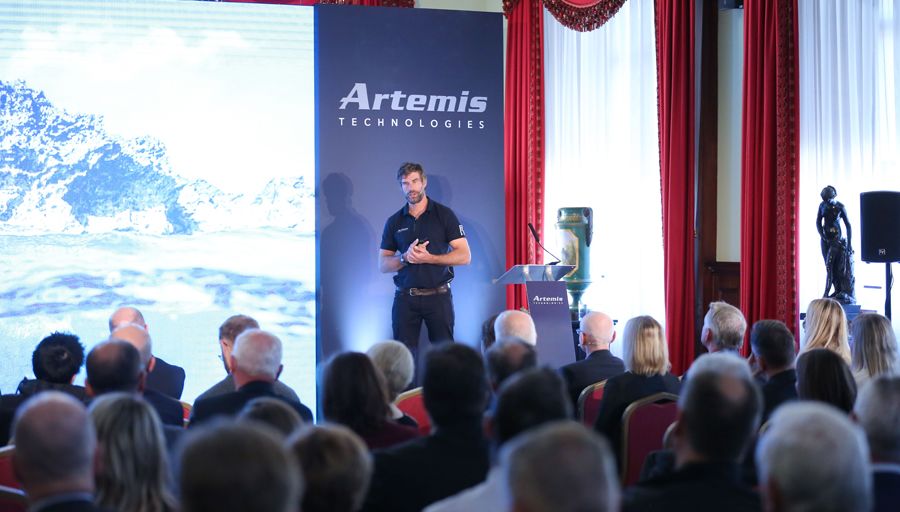
The impact of Decarbonising maritime transport: how this project is helping to revitalise the traditional shipbuilding industry in Belfast. Video credit: UKRI. On-screen captions and an auto generated transcript is available on YouTube.
Partners:
- Ards and North Down Borough Council
- Belfast City Council
- Belfast Harbour
- Belfast Met
- Bombardier Belfast
- Catalyst
- Creative Composites
- Energia Group
- Invest Northern Ireland
- Northern Ireland Advanced Composites and Engineering
- Queen’s University Belfast
- Ulster University.
Read about decarbonisation of maritime transportation – a return to commercial sailing.
Seedcorn funding
Wave 1
In March 2019, a total of 23 projects were awarded seedcorn funding (a total of £1.2 million). They developed bids for the full stage awards, with the intention that up to eight of these would receive full stage funding. The projects are:
- Global open finance centre of excellence
Financial technology in Central Scotland led by University of Edinburgh. - The living laboratory
Precision medicine in Glasgow city region led by University of Glasgow. - Accelerating the fourth industrial revolution across Scotland’s central belt
Industrial biotechnology in the central belt of Scotland led by University of Strathclyde. - Clyde waterfront innovation campus
Photonic and optoelectronic materials in Glasgow city region led by University of Glasgow. - CSconnected
Compound semiconductor materials in south Wales led by Cardiff University. - Decarbonisation of maritime transportation – a return to commercial sailing
Zero emissions sailing in Belfast led by Artemis Technologies. - Centre for sustainable advanced manufacturing
Advanced manufacturing in the north east led by University of Sunderland. - Establishing the UK hydrogen corridor
Green hydrogen in the Tees Valley-Leeds corridor led by TWI Ltd. - North east cluster for healthy ageing and independent living
Healthy ageing in the north-east led by Newcastle University. - Delivering integrated solutions for human infections (now Infection Innovation Consortium)
Infectious disease therapeutics in Liverpool and Cheshire led by Liverpool School of Tropical Medicine. - AI-enabled materials chemistry across the Mersey basin
Fine chemicals and advanced materials in Liverpool, Cheshire and Greater Manchester led by STFC Laboratories. - Energy Estuary 2.0: fuelling inclusive economic growth in the Humber
Clean energy in the Humber Estuary led by University of Hull. - The glass corridor – delivering world-class glass research in the northern powerhouse
Glass manufacturing in the Sheffield-Leeds region led by Glass Futures Ltd. - Medical technologies in the Leeds city region: driving economic growth, improving health and care
Medical technologies in the Leeds city region led by University of Leeds. - Growing rehabilitation industries project
Rehabilitation medicine in the Nottingham, Loughborough and Leicester corridor led by Loughborough University. - Med Tech CONNECT west-Midlands (collaborative network to enable and enhance cross-sector transformation)
Medical technologies in the West Midlands led by University of Birmingham. - MyWorld
Creative technology sector in Bristol and Bath led by University of Bristol. - The environmental intelligence accelerator
Environmental sciences in Devon and Cornwall led by University of Exeter. - Cyber Wales and west
Cyber security in the south-west and Wales led by University of Bristol. - Performing productivity: screen, stage and the performing arts for economic growth in the Thames Estuary production corridor
Creative arts in London and the Thames estuary led by University of the Arts London. - Growing Kent and Medway
Climate-smart food production and processing in Kent and Medway led by NIAB EMR. - Realising economic potential from agricultural (and horticultural) yield – (REPAY)
Agriculture and horticulture in the east of England led by University of Essex. - Supply chain 4.0 south-east Midlands hub of excellence
Transport and logistics in Bedfordshire and the south-east Midlands led by Cranfield University.
Wave 2
In wave two, 17 projects were awarded up to £50,000 seed funding (a total of £850,000). The projects are:
- Centre for regulated bio-manufacture
Bio-therapeutics in the Lothians led by Heriot-Watt University. - HotScot – unlocking minewater geothermal energy within former mining areas
Geothermal energy in the central belt of Scotland led by University of Strathclyde. - Digital Dairy Value-chain for south-west Scotland and Cumbria
Digitisation of dairy processing in west Scotland and Cumbria led by SRUC. - Creative capital: moving the Cardiff capital region’s media cluster from strength to global leadership
Media innovation in the Cardiff capital region led by Cardiff University. - Smart nano-manufacturing corridor
Photonics design and manufacture in the Belfast-Londonderry corridor led by Seagate Technology Ireland. - The Northern Ireland precision biomarkers and therapeutics consortium
Digital health and pharmaceuticals in Northern Ireland led by Queen’s University Belfast. - International centre for connected construction
Digitisation of construction sector in the north-east led by Northumbria University. - Transforming productivity in complex medicines in the Cheshire and Warrington region
Complex medicines in Cheshire and Warrington led by Medicines Discovery Catapult. - Creative City+
Creative industries in Greater Manchester led by Manchester Metropolitan University. - Advanced machinery institute
Advanced manufacturing in the north of England led by National Physical Laboratory Management Ltd. - Trans-Mid: Midlands supercluster for net zero transport and mobility supply chains
Net-zero transport in the Midlands led by University of Nottingham. - CW creative futures: driving a new era of immersive technologies growth in Coventry and Warwickshire
Immersive technologies in Coventry and Warwickshire led by Coventry University. - Midlands advanced ceramics for industry 4.0
Advanced ceramics in the Midlands led by Lucideon Group Ltd. - South West floating offshore wind accelerator
Offshore wind power in the south-west led by Wave Hub Ltd. - To deliver data driven next generation healthcare from Whitechapel
Digital healthcare in the Whitechapel area of London led by Queen Mary University of London. - Accelerated medicines design and development
Medicines design and development in Kent led by Kent Surrey Sussex Academic Health Science Network. - Sunrise coast: Suffolk and Norfolk research and innovation on the sustainable energy coast
Clean energy in Suffolk and Norfolk led by University of East Anglia.
Interested in applying?
The SIPF is open to any sector, area of technology or research discipline.
SIPF funding is allocated via a two-stage process. Following initial assessment, we award each shortlisted consortium seed funding to develop their application for full funding. We consider the potential for impact on the local economy when selecting projects to receive full funding.
There are no funding opportunities at the moment but if more become available we will publish them on the UKRI website.
The SIPF assessment panel
- Chair: Dame Kate Barker
- Sir Peter Bazalgette, ITV
- Charles Bragg, Procter and Gamble (retired)
- Professor Rick Delbridge, Cardiff University
- Professor Iain Gray, Cranfield University
- Catherine Johns, Kielder Observatory Astronomical Society
- Professor Richard Jones, University of Manchester
- Dr Soraya Jones, The Invested Investor, The Bradfield Centre
- Dr Trevor Maynard, Lloyd’s
- Professor Philip McCann, University of Sheffield
- Professor Tara Moore, University of Ulster
- Professor Lesley Yellowlees, University of Edinburgh (retired).